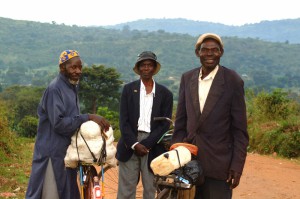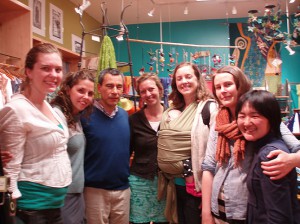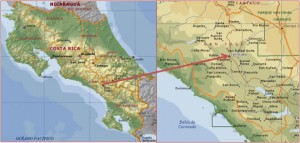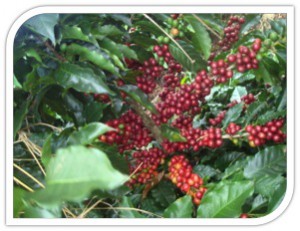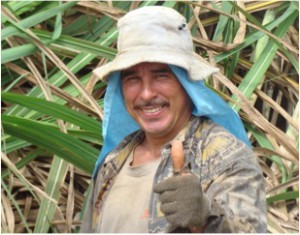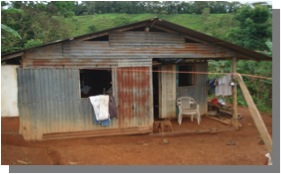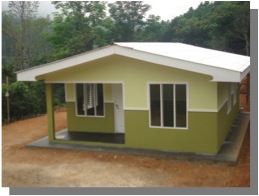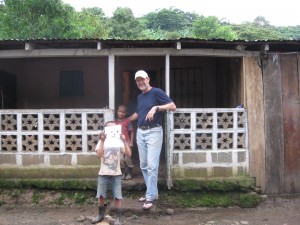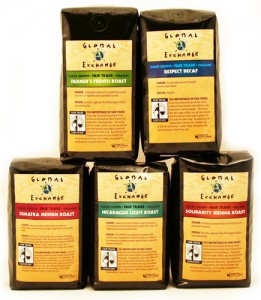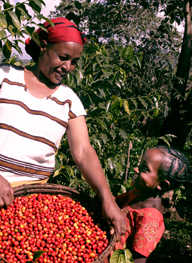Fair Trade coffee is about to get an extra shot of deliciousness in Washington DC with the screening of the award winning documentary film Delicious Peace at the Global Exchange Fair Trade Store (inside Busboys and Poets @ 5th & K).
The Peace Movement and the Fair Trade Movement meet in Uganda with amazing farmer and activist JJ Keki, who fearlessly crossed religious boundaries to build economic prosperity and peaceful community. This inspirational documentary film tells the story of Christian, Muslim, and Jewish coffee farmers in Uganda coming together in the wake of the Idi Amin regime of terror and intolerance.
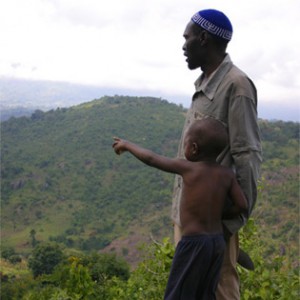
JJ Keki Founder and Chairman of the Cooperative and his youngest son Aaron look over the Namatala River Valley, and the slopes of Mt. Elgon. Photo Credit: Thanksgiving Coffee Company
In Uganda today, small-scale coffee farmers account for over 90% of the country’s revenues. These farmers face small profits due to inefficiencies within the Ugandan government and exploitative market intermediaries.
With the support of US-based non-profit organization Kulanu, JJ Keki and a revolutionary group of farmers successfully organized The Peace Kawomera Cooperative; and rightfully named their coffee Mirembe Kawomera, meaning Delicious Peace in the local Luganda language.
They’ve partnered with Thanksgiving Coffee Company, an artisan coffee roaster in Northern California, to make Delicious Peace Coffee available to you. The coffee is available at our Global Exchange Stores.
The Peace Kawomera Coffee cooperative, which has grown to over 1,000 members, is the first Fair-Trade certified Ugandan coffee to be sold in the United States.
With the United States consuming 1/5th of the worlds’ coffee, our purchasing power has strong impact in Uganda. When consumer choose Fair Trade coffee, we’re helping to ensure that coffee farmers receive just compensation, competitive prices, access to financial stability, equal distribution of benefits among the cooperatives, and the opportunity to be apart of a sustainable business that supports their community.
TAKE ACTION!
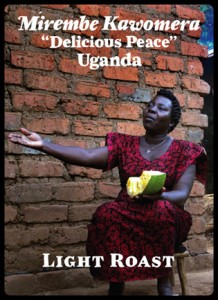
Deena Shadrack is a leader in the Abayudaya (Jewish) community, strong advocate for womens’ rights, a coffee farmer, and a mother to many. Photo credit: Thanksgiving Coffee Company
Come view a powerful film that follows these farmers and their amazing work!
What: A Special Film Screening of Award Winning Documentary Delicious Peace
When: April 2, 2013 from 6-8pm
Where: Global Exchange Fair Trade Store (inside of Busboys and Poets); 1025 5th Street NW Washington, DC 20001
The 40-minute film will be followed by a panel discussion with Jeff Goldman (Executive Director of the Fair Trade Resource Network), myself (manager of the Global Exchange Fair Trade Store in DC & VA), and others. Don’t miss out on a post discussion FREE tasting of Delicious Peace coffee!
—
RSVP: Let us know if you’re planning to attend, Rsvp on Facebook. Or just show up!
—

